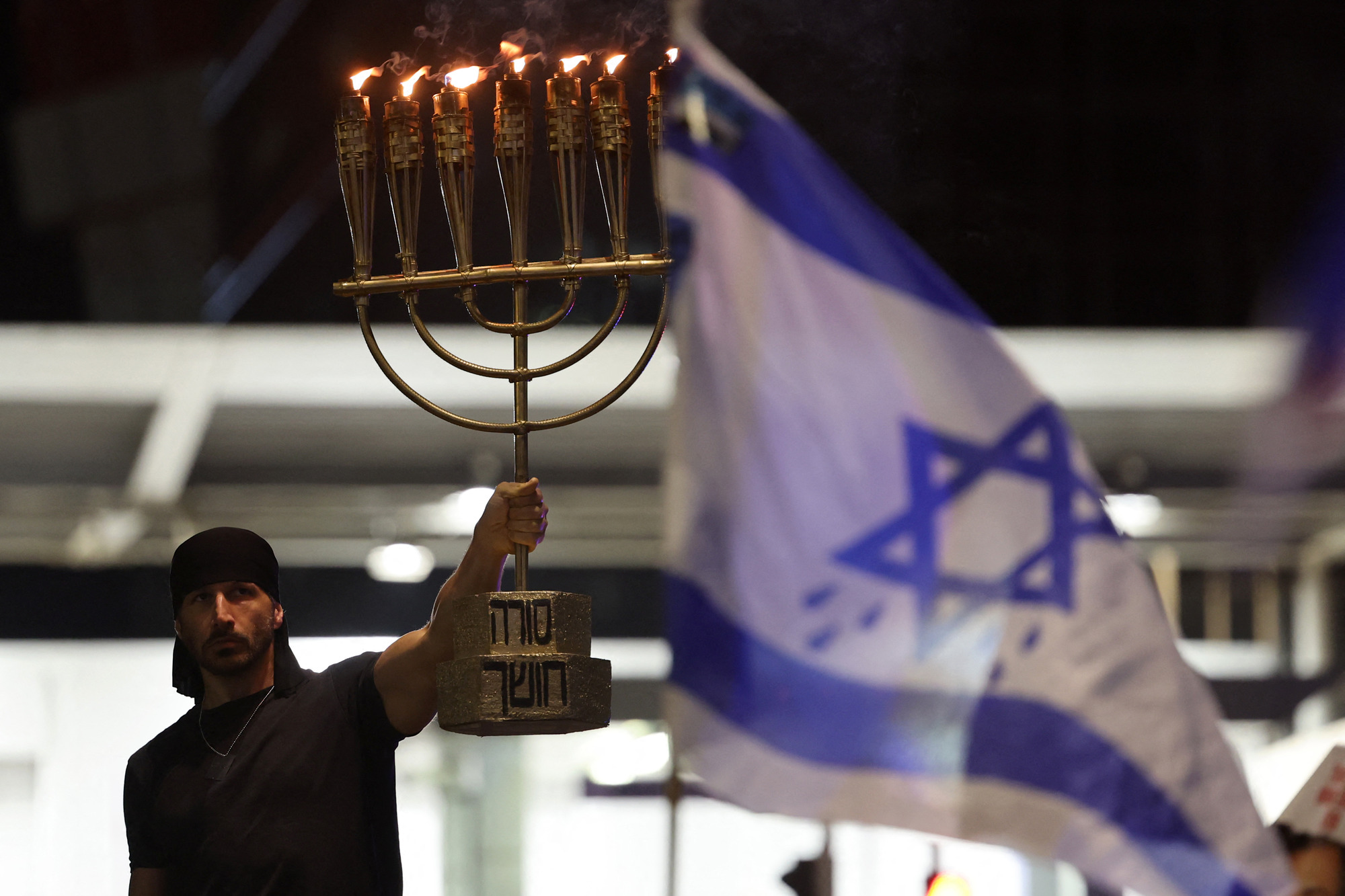With the incursion of Israeli tanks into Rafah and the sealing off of the crossing with Egypt, the war in Gaza has jolted out of the relative stasis of recent weeks.
This has in turn given new urgency to the Israeli protests calling for a halt to the war and the removal of Prime Minister Benjamin Netanyahu. Many Israelis see the attack on Rafah as evidence that the government has given up on attempts to free the remaining hostages and has accepted their deaths as a price worth paying for continuing the offensive and prolonging Netanyahu’s time in office.
The latest protests last weekend were notably less restrained than usual, with an increase in the number of arrests — including detentions of some family members of the hostages — and heavy-handed police tactics, with mounted officers clearing demonstrators from the Ayalon Highway that runs through Tel Aviv.
The lack of a hostages’ deal and the attack on Rafah has furthered the trend since 7 October of centrist Israelis losing faith in the Likud government, and has exacerbated opposition to Bibi beyond the parts of society which have traditionally opposed his administration.
Last Saturday, when it looked as though a deal on the hostages was imminent — and in fact the following day Hamas announced that it was willing to accept the deal, only for it to be rejected by Israel — reports spread that Netanyahu was determined to attack Rafah anyway, with or without a deal. It was broadly assumed that Bibi himself was the source of these reports, briefing friendly media allies in an attempt to sabotage the ceasefire.
This was because, while a ceasefire in exchange for the return of hostages is acceptable to many Israelis, it is not palatable to key elements of Netanyahu’s coalition, and Bibi is unwilling to sacrifice his own career to bring the hostages home. He knew he could not be seen to publicly reject a deal that would ensure the hostages’ return, so he tried to engineer its collapse behind the scenes.
On the Keshet 12 evening news programme last Saturday, on the most-watched commercial station in Israel, news presenter Yaron Avraham confirmed that this was the case, furiously declaring that he was “not going to play games anymore” and that everyone knew it was Netanyahu briefing that an invasion was imminent, just as a deal appeared close.
Among ordinary Israelis, this latest development is bringing more of those previously supportive of the war into the ceasefire camp, especially as Hamas itself publicly accepted the latest deal.
It has further exacerbated the growing political divide between those who prioritise the return of the hostages even at the cost of Hamas remaining undefeated, and those who prioritise the defeat of Hamas — or at least the continuation of the war — over the return of the kidnapped.
The renewed offensive shows Bibi’s response. Forced to choose between a deal, however imperfect, that would have at least begun bringing home Israelis or continuing to placate the hard-Right politicians necessary to maintain his rule, the tanks rumbling into Rafah tell us which choice he made.











Join the discussion
Join like minded readers that support our journalism by becoming a paid subscriber
To join the discussion in the comments, become a paid subscriber.
Join like minded readers that support our journalism, read unlimited articles and enjoy other subscriber-only benefits.
Subscribe